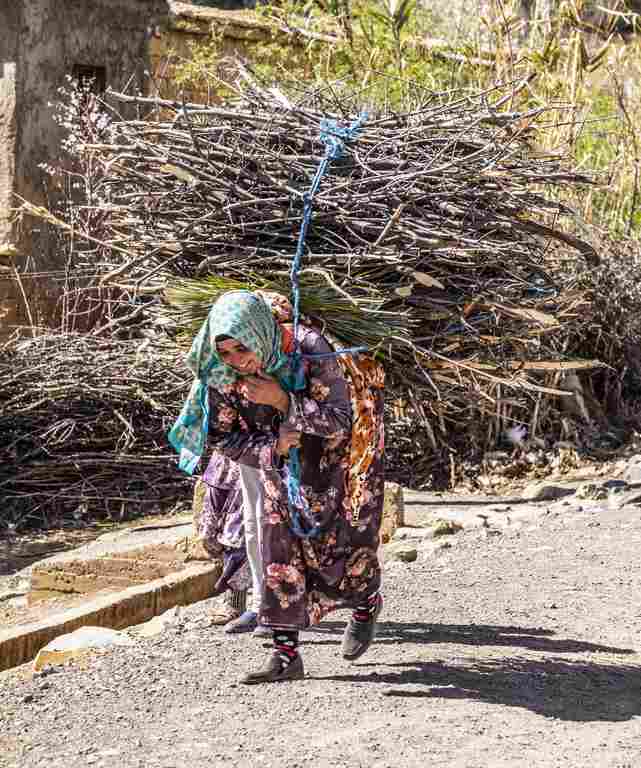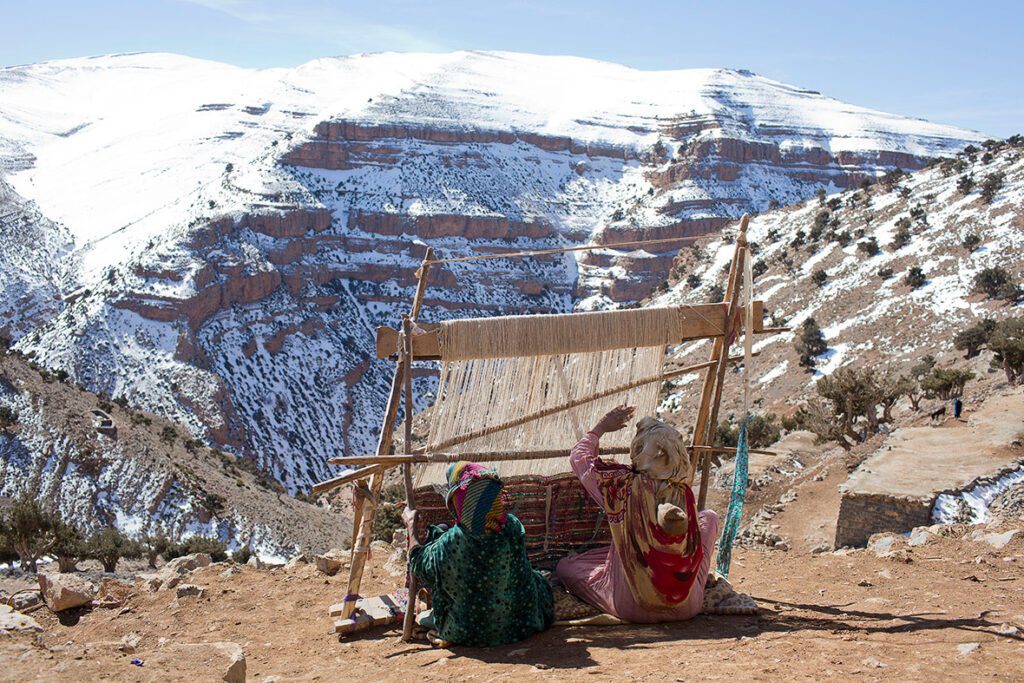The Berber nomade people, also known as the Amazigh or Imazighen, are indigenous to North Africa, including Morocco. The Berber culture has a rich history that dates back thousands of years, and they have a significant presence in Morocco, particularly in the Atlas Mountains and the Sahara Desert.

Nomadic Lifestyle: Some Berber nomade communities in Morocco traditionally lead a nomadic or semi-nomadic lifestyle, especially those in the desert regions. Nomadic Berbers are often associated with the Tuareg people, who are known for their distinctive blue clothing and inhabit areas in the Sahara. These nomadic Berber communities historically relied on pastoralism, herding animals such as goats, sheep, and camels, as well as engaging in trade across the desert.
Tents and Traditional Dwellings: Nomadic Berbers traditionally live in tents, which are portable and suited for a mobile lifestyle. These tents are often made from woven materials and are designed to withstand the harsh desert conditions. In more settled communities, Berbers may live in traditional adobe houses, especially in the Atlas Mountains.

Cultural Practices: Berber nomade culture is diverse, with various subgroups and dialects. Despite regional differences, there are common cultural practices and traditions that bind Berber communities together. These include vibrant music, colorful textiles, intricate jewelry, and unique festivals.
Languages: The Berber nomade languages, collectively known as Tamazight, have several dialects. In Morocco, Tamazight is recognized as an official language alongside Arabic. However, there have been efforts to promote and preserve the Berber languages and culture.
Economic Activities: Nomadic Berbers traditionally engage in herding and trading, often participating in trans-Saharan trade routes. Some have also adapted to more settled lifestyles, practicing agriculture and artisanal crafts.
Tourism: In recent years, there has been an increasing interest in Berber culture among tourists. Many visitors seek out experiences with Berber communities, exploring the desert landscapes, visiting traditional markets, and enjoying the hospitality of Berber families.
It’s important to note that while traditional Berber lifestyles persist, modernization and urbanization have also influenced many Berber communities. The balance between preserving cultural heritage and adapting to contemporary changes is an ongoing challenge for these communities.
